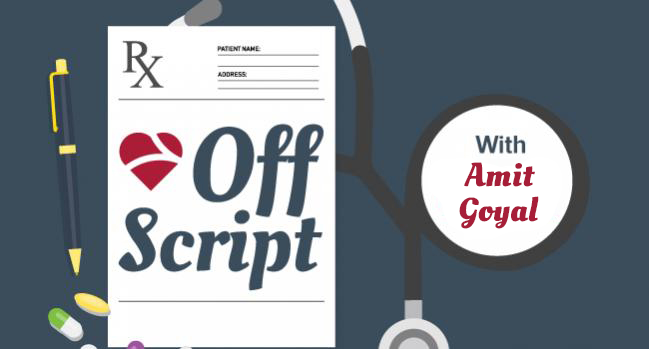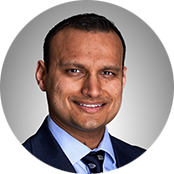Early-Career Cardiologists Are Reshaping Education: Let’s Learn, and Adapt
More than ever, early-career physicians are looking for ways to fill gaps left by traditional education while maximizing flexibility.

Medicine is a balancing act, a mosaic of competing priorities. Just this week, I wrapped up a challenging coronary intervention and hurriedly planned a TAVR case before racing against the clock to reach my son’s soccer game. After dinner, I recorded a CardioNerds podcast, and then, after getting the kids off to bed, I reviewed the final edits on an overdue manuscript. This is a typical day in the life of a modern cardiologist: we have to get creative about fitting our own educational needs and lifelong professional development into our busy schedules.
The digital age has made this easier, revolutionizing how we learn and teach cardiology. Adult learners, as defined by Malcolm Knowles' andragogy principles, thrive on self-directed, problem-centered, and asynchronous modes of education. In contrast, much of traditional education is educator-driven, following some predesigned comprehensive curriculum. Although these are essential for understanding fundamental concepts, such curricula and traditional platforms are less suited for practicing clinicians who are busy and need efficient ways of accessing information relevant to their immediate goals.
Podcasts, videos, and social media empower us to learn on the go, fitting education into our fragmented schedules. These online platforms allow us to personalize our education in ways that fit our goals and schedules while remaining aligned with our intrinsic motivation to provide better patient care and deepen our knowledge. The shift to digital education has been further catalyzed by the pandemic, accelerating the adoption of tools that were once considered supplementary.
CardioNerds was born from the need to make education more flexible, portable, and learner-centric. Launched in 2019, it aimed to fill gaps in digital cardiovascular education by offering accessible, high-quality, and peer-reviewed content. It differs from established cardiovascular institutions in that CardioNerds is primarily learner-driven, designed by collaborative networks spanning the training spectrum, from students through faculty. A key vision has been to empower all learners to teach and all educators to learn. This “flattening” of the traditional educational hierarchy is a key facet of the online space; by empowering the medical student to the same degree as a professor emeritus, the focus, content, and delivery of education all seem to benefit. Of course, it is even more important to protect the validity of information with such a paradigm, and CardioNerds does so with extensive peer review and referencing of primary literature.
What began as a small podcast has since grown into a global community, fostering connections across stages of training and geographic boundaries. This growth has been fueled by the recognition that traditional methods of learning often leave gaps, particularly for busy professionals who need flexible educational opportunities.
Traditional medical education often follows a pedagogical model, with senior educators dictating the curriculum. While effective for foundational knowledge, this approach can fall short for learners who need nuanced, timely insights tailored to specific clinical challenges. Today’s learners benefit from a blended model, where traditional didactic sessions are complemented by digital resources that allow for asynchronous and just-in-time learning. CardioNerds embraces this hybrid approach, offering case-based podcasts, infographics, and online journal clubs that enhance the traditional learning experience. These resources enable learners to explore topics on their terms that are relevant to their goals and patient care while maintaining a connection to evidence-based practice.
Equally transformative is the ability of digital learning platforms to build a "community of practice." Historically, mentorship and collaboration were often limited by geography and institutional affiliation. The digital landscape enables trainees to connect with mentors and peers regardless of location, creating a more inclusive and diverse educational ecosystem. Through initiatives like the Narratives in Cardiology series, CardioNerds has amplified underrepresented voices, fostering a culture of equity and inclusivity. This democratization of education ensures that all learners, regardless of background or resources, have access to high-quality content and mentorship.
Our journey underscores several key lessons for the future of cardiology education. Asynchronous and just-in-time learning is not only a convenience but also a necessity for busy professionals. Free Open Access Medical Education (FOAMed) has leveled the playing field, allowing all trainees to access the same high-quality content regardless of institutional resources. Traditional platforms and institutions are also adapting, incorporating these principles through innovations such as online versions of textbooks, mobile apps that consolidate clinical guidelines, and remote access to conference sessions. Networking and mentorship programs developed by professional societies are further building communities of practice, fostering connections across institutions and geographies.
Artificial intelligence (AI) also is reshaping the way we access and process information, enabling rapid synthesis of knowledge through tools like predictive algorithms and generative content. However, this digital evolution requires careful oversight. The ease of information dissemination in the digital world makes it vulnerable to disinformation, and AI-generated content can sometimes produce inaccuracies or "hallucinations." It is crucial that these tools are rigorously validated to maintain the integrity of medical education and practice. The broader increase in the use of generative AI among learners and practicing clinicians emphasizes the importance of both traditional curriculum-based as well as novel digital-based education from trusted sources like academic institutions, professional societies, respected news media, and established FOAMed educators.
For me, CardioNerds has been more than an educational platform; it has been a journey of passion and purpose. From collaborating with global thought leaders to mentoring trainees in digital education, I’ve witnessed firsthand the transformative power of innovation in medical education and community building. This work has reinforced the importance of being "constructively disruptive"—challenging the status quo while respecting the rich traditions of our field.
As we navigate an ever-evolving landscape, it’s imperative that we embrace these new modalities and learn from the ways early-career cardiologists and trainees are reshaping education. For my senior colleagues, this is an opportunity to lean into these innovations, not as a replacement for traditional methods but as a powerful complement. For my peers, let us continue to innovate and inspire, ensuring that the future of cardiology education is inclusive, engaging, evidence-based, and effective. Together, we can create a hybrid model of learning that meets the needs of today’s learners while honoring the timeless principles of our profession.
Off Script is a first-person blog written by leading voices in the field of cardiology. It does not reflect the editorial position of TCTMD.
Amit Goyal, MD, is a structural interventional cardiologist and Director of the CICU at the Dallas VA Medical Center, Editor-in-Chief…
Read Full Bio

Comments